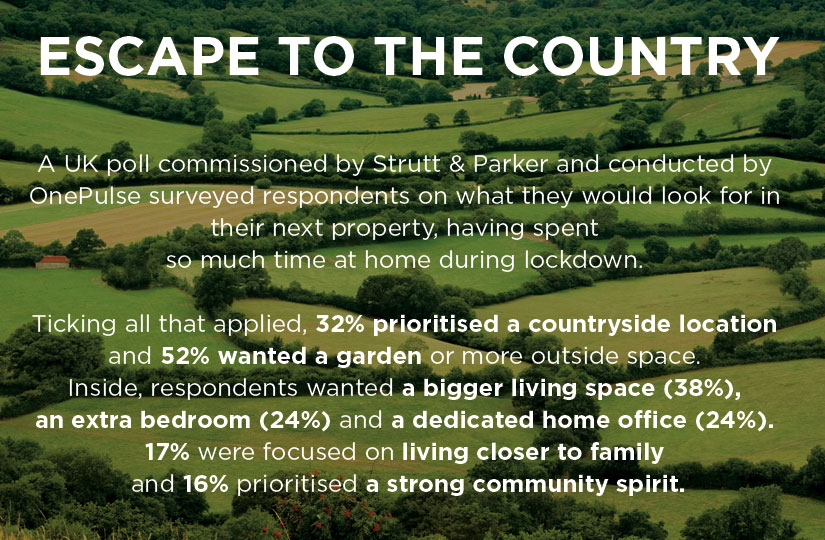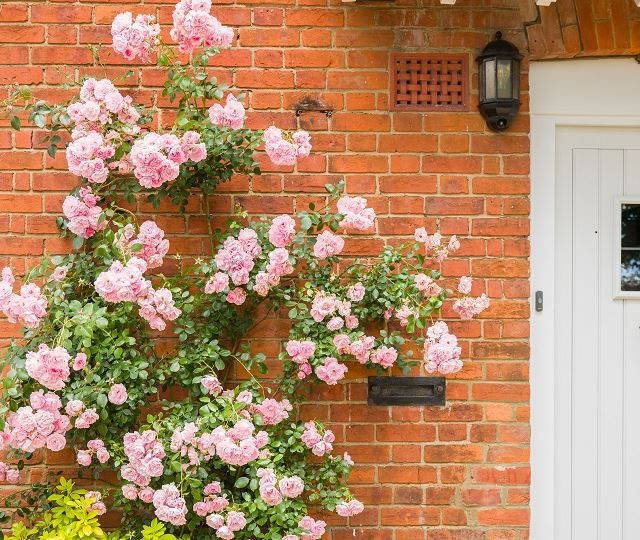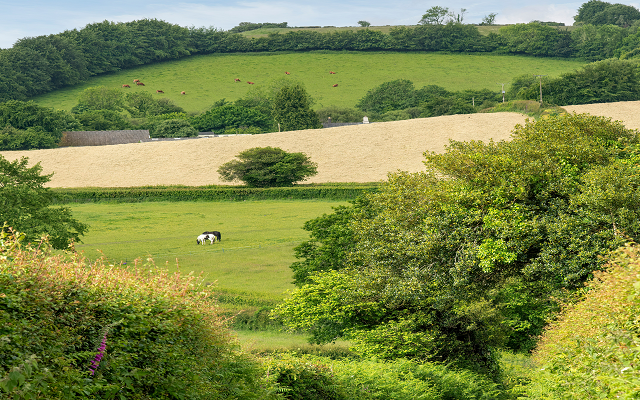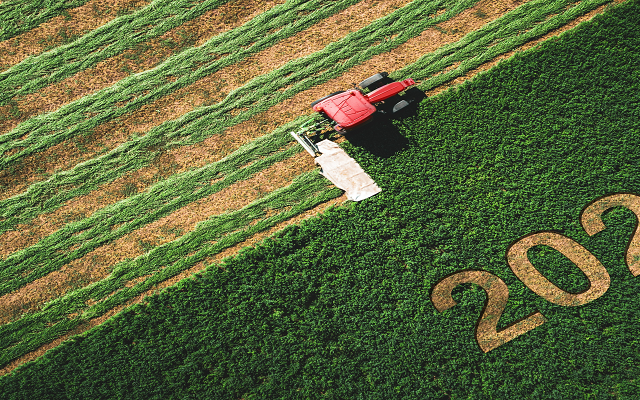Future Strategies for the Rural Estate
With lockdown measures gradually easing, Strutt & Parker considers some of the potential secondary impacts of the Covid-19 pandemic and explores where the opportunities and risks might be for rural estates.
“It is not the strongest of the species that survives, nor the most intelligent that survives. It is the one that is most adaptable to change.”
This quote, attributed to Charles Darwin, is one that resonates if you look back at the history of the rural estate and how landowners responded to the challenges of the agricultural depression which started in the latter part of the 19th Century, two world wars and the great depression in the first half of the 20th century. It was those businesses which were quickest to adapt that went on to thrive – a lesson that perhaps we can apply as we consider the impact of Covid-19 on the rural economy as we move forwards.
We are undoubtedly approaching a period when we can expect widespread changes across the rural economy.
Land managers have been very aware for some time that they are facing an era of transformation, with a shake-up of the subsidy landscape, the need to adapt to climate change and changing public expectations all significant factors. But we must now layer on the impact of the Covid-19 crisis, which will inevitably result in short-and long-term economic, social and political impacts which are likely to accelerate existing trends.
It has been said many times before – but remains true nevertheless – that times of significant change brings threats, but they also bring opportunities. So how can rural estates respond at this time to mitigate their risks and be ready to flourish when the economy returns to normal?
A time to review
Income streams will reduce due to shortfalls from rural commercial portfolios, some parts of the residential portfolio and, of course, from retail and tourism enterprises in the short term as a result of the crisis.
For everyone, there is going to be a challenge on how we backfill that shortfall.
The speed of recovery for rural commercial and agricultural businesses will be heavily dependent on the ability of an estate to undertake a swift and thorough business review of their public-facing businesses to ensure they are providing for the needs of the consumer and will positively contribute to estate finances once relative normality resumes.
As we move out of lockdown, it will be vital that open businesses win back the confidence of the customers by demonstrating their operations are safe (see panel). This will be particularly vital for those serving an older customer base, who will understandably remain cautious as businesses open up.
Some estates may have inherently unviable enterprises in operation which will need closing. Others may need to restructure to achieve the correct spread of risk. All should be looking to find ways to ‘pandemic proof’ trading enterprises where possible, or at least looking to mitigate the impacts of future pandemics.
While those farms and estates which have diversified have perhaps felt the impact of Covid most keenly, that doesn’t mean that diversification was the wrong strategy. For example, while tourism revenues are likely to be hit sharply in 2020, they should bounce back next year as in the long-term the sector is resilient.

A time to innovate and invest
It is also a good time to undertake a full review of the commercial, agricultural and residential portfolios to identify opportunities to innovate and invest.
Potential areas of growth could include the further development of rural hubs, in response to the anticipated flow of families and businesses into the countryside (see panel). Estates have the opportunity to attract in wealth creators who will help to reinvigorate the rural economy and revive rural villages. Investment in property, estate infrastructure and improved connectivity could all be critical factors in attracting this new demographic of tenant.

A sector likely to benefit from the pandemic is e-commerce, as over the past 100 days many of the barriers that have previously existed between consumers and producers have been broken down. The opportunity for producers on rural estates to trade directly with consumers and add value to their produce has never been better.

Natural capital is going to be another significant opportunity for the future of rural estates. The market is developing for ecosystem services where landowners will be able to attract long-term, private investment in return for delivering desired environmental outcomes. This may require changes in land use, but will open up new income streams.
Low interest rates look as if they will remain for some time, meaning the coming months and years are likely to be a good time to access money to invest. Questions that need to be answered include: can you get your business to grow at a quicker rate than the cost of the money? Can you attract in new enterprises through investment in improvements in property and infrastructure?
Job losses in other sectors mean there could be a pool of talent available, who have the skills and entrepreneurial flair to add value to an estate economy and may be willing to consider joint ventures and other business models.
The taxation environment ahead is more uncertain, although there seems to a general consensus that we could be moving towards a more aggressive taxation regime. There is an opportunity now to look at business structures so they are more agile, which should make it easier to adapt as regimes are updated.
A time to engage
Towards the end of last year, it had felt like the land use and indeed land ownership were topics increasingly in the public spotlight. The coronavirus crisis has dampened down some of this debate, but questions about the impact of agricultural practices on the environment and private land ownership have not gone away.
Rural estates do many fantastic things to contribute to society, but to make sure they stay relevant they need to really shout about all the great things they do.
What society demands of land and the rural environment has changed significantly over the past couple of decades, with rural businesses now being asked to contribute to wildlife diversity, help reduce climate change, reduce flood risk and allow more open access.
The lockdown period has clearly highlighted the desire of the public to have access to the countryside, which may open up opportunities for estates to meet this demand while further enhancing their natural capital.
A time to act
Strutt & Parker has many experts who are skilled in appraising rural businesses and identifying opportunities for further diversification.
We have a team who can carry out an estate-wide rural placemaking exercise to get the foundations for success in place.
We also have a free Time to Review business analysis tool to offer rural estates insight into how they can improve the commercial performance of their business. It is designed to aid long-term, strategic decision-making for mixed rural businesses with let property, by quickly identifying their strengths and weaknesses in terms of a set of selected financial ratios.






